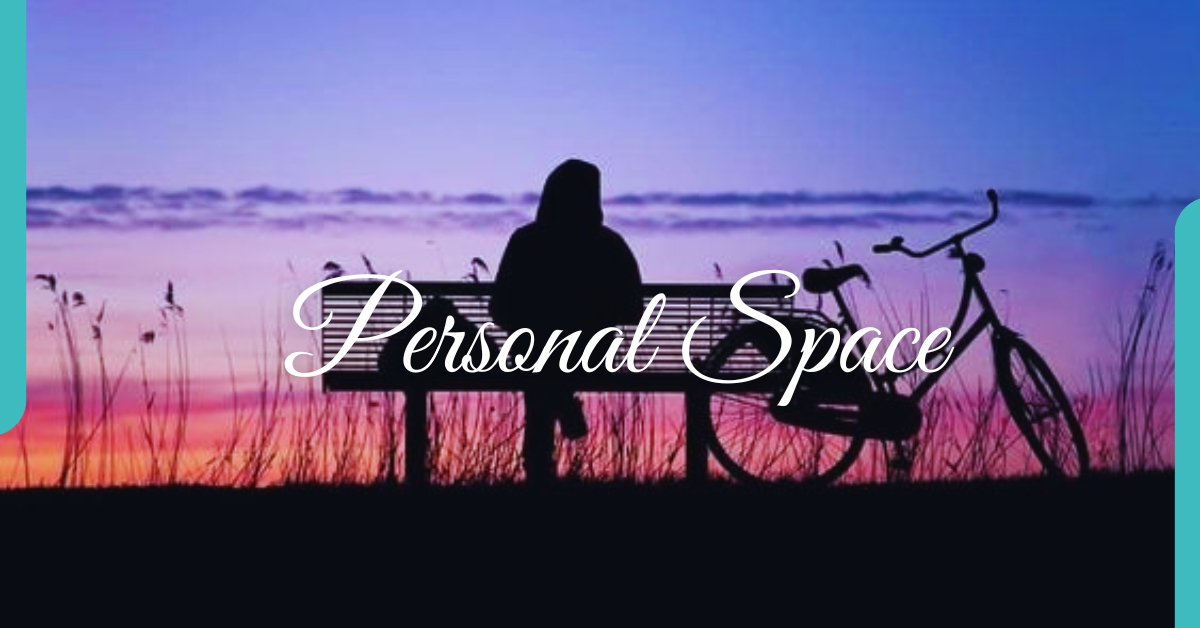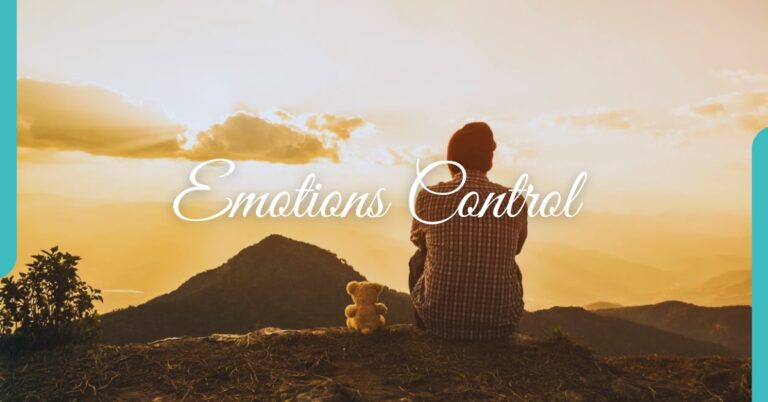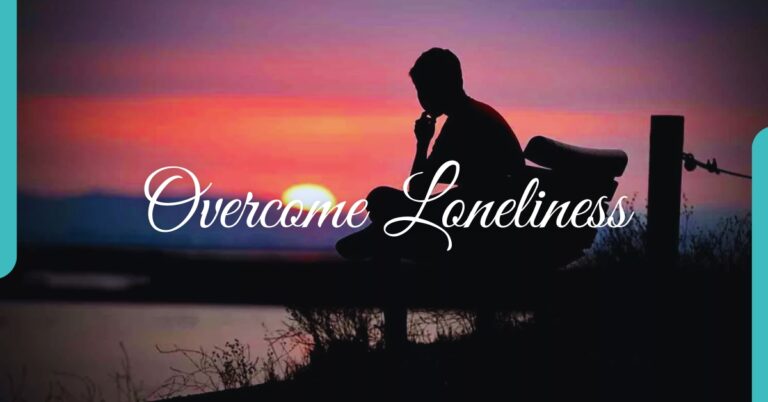The Importance of Personal Space: The Power of Self-Privacy
The concept of personal space often slips through our fingers like sand. Imagine standing in a bustling cafe, surrounded by friends and strangers alike, yet feeling an overwhelming urge to retreat into your bubble an invisible shield that protects your thoughts and emotions from the outside daily routine problems.
This instinctual craving for self-privacy is not merely a quirk of human nature; it’s a vital component of our mental well-being. As we navigate through crowded rooms and digital landscapes, understanding the importance of personal space becomes crucial for maintaining our sense of identity and emotional balance.
Personal space is not just about physical distance; it’s also about creating an environment where we can reflect, recharge, and truly connect with ourselves without external distractions. Cultivating self-privacy enhances our relationships with others while fortifying our inner selves against the relentless noise of modern life.
Is it Possible to Have a Private Life?
It is possible to have a private life and maintain personal space, even in our increasingly interconnected world. The key lies in setting boundaries and prioritizing your own needs. This can involve limiting the amount of personal information you share on social media and carving out time for yourself away from work demands or social obligations.

Personal space is an area with invisible boundaries surrounding a person’s body into which intruders may not come. Robert Sommer
Establishing these boundaries helps create a sanctuary where you can recharge and reflect. Open communication with friends, family, and colleagues about your privacy needs can encourage understanding and respect for your personal space. It’s important to remember that everyone has different comfort levels regarding privacy; what works for one person may not work for another.
“I don’t know why people are so keen to put the details of their private life in public; they forget that invisibility is a superpower.” Banksy once remarked on private life. The right to control who enters our lives and how much we share with them is known as personal space.
What Does It Mean To Have A Private Life?
Having a private life means creating and maintaining boundaries that protect your thoughts, feelings, and experiences from public scrutiny. It involves choosing what aspects of your life you wish to share with others and which ones you prefer to keep to yourself. This can include everything from your daily routines and relationships to your innermost thoughts and emotions.
A private life allows individuals to explore their identities without external pressure or judgment. Personal space is an essential component of this privacy. It refers not only to the physical distance we maintain from others but also to the emotional boundaries we set in our interactions. Having personal space means having the right to decide who enters our lives and how much we share with them.
Why do People Talk About Their Private Lives?
People often talk about their private lives for various reasons, including the need for connection and validation. Sharing personal experiences can encourage intimacy and strengthen relationships, allowing individuals to feel understood and supported by others. In a world where social media amplifies communication, many find it natural to share aspects of their lives to create a sense of community or belonging.

Between stimulus and response, there is a space. In that space, we have the power to choose our response. In our response lies our growth and our freedom. Viktor E. Frankl
Discussing private matters can serve as a form of self-reflection or catharsis. By articulating thoughts and feelings, individuals may gain clarity on their experiences or receive feedback that helps them navigate challenges. It’s essential to recognize the boundaries of personal space; not everyone is comfortable with sharing intimate details, and respecting those limits is crucial for healthy interactions.
These Three Things Make People Share Their Private Lives:
The digital landscape has transformed the way we navigate self-privacy and personal space, often blurring the lines between sharing and overexposing. Sharing intimate details serves as a therapeutic release; it’s a way to connect with others who have faced similar struggles. This shared vulnerability not only cultivates empathy but also provides a sense of belonging in a world that can often feel isolating.
I feel like the quality of privacy and respect for people’s personal space has been completely disintegrated. You can ask to take the picture. I will be so glad to take the picture and pose and look good for the picture. Busta Rhymes
- To take solace from what others have endured…
- To want to receive likes and comments to feel good about oneself.
- To find solace in the virtual companions that the online world offers.
Why is it Wrong to Talk About Private Things?
Talking about private things can often cross boundaries that respect individual privacy and personal space. Each person has the right to control what information about themselves is shared and with whom. When private matters are discussed openly, it can lead to feelings of vulnerability or exposure, potentially damaging relationships and trust.

All space must be attached to a value, to a public dimension. There is no private space. The only private space that you can imagine is the human mind. Paulo Mendes da Rocha
Discussing private topics in public or inappropriate settings can lead to misunderstandings or misinterpretations. It may also inadvertently involve others who are not part of the conversation, creating discomfort or conflict. Maintaining discretion about self-development reflects a level of maturity and consideration for others’ feelings, which is essential for building strong, respectful connections in both personal and professional realms.
Is it Okay to Keep to Yourself a Lot?
It’s perfectly okay to keep to yourself a lot. Everyone has different comfort levels when it comes to social interaction and sharing personal information. Solitude can be a source of rejuvenation and self-reflection, allowing them to recharge and focus on their interests or passions without external distractions. Embracing your privacy is not inherently negative; it can lead to greater self-awareness and personal growth.
It’s essential to strike a balance. While valuing your privacy is important, isolating yourself completely may lead to feelings of loneliness or disconnect from others. Engaging in meaningful relationships and social activities occasionally can enhance your well-being and provide support when needed. The key is finding what works best for you while maintaining healthy connections with those around you.
Five Instructions on How to Live a Private Life
Living a private life in today’s hyper-connected world can be challenging, but it is certainly achievable with intentional practices. Consider limiting your social media presence. While these platforms can encourage connections, they often encourage oversharing. By curating what you share and who you share it with, you can maintain greater control over your personal information.

Everybody has a line. It doesn’t matter how you’re dressed onstage or what you say in your songs, that doesn’t give anybody the right to invade your personal space. Lzzy Hale
The art of privacy necessitates a song of silence and a dance of prudence. Practice, patience, and self-awareness are necessary for mastering this ability. How to have a peaceful life:
- Avoid Sharing
- Remain Behind the Cameras
- Ignore TMI
- Pick Your Partners Wisely
- Establish and Maintain Boundaries
Avoid Sharing
In this day and age, it can be challenging to avoid sharing every moment of our lives on social media. Fighting this impulse and realizing that not every experience or thought needs to be shared is the first step toward having a private existence.
Remain Behind the Cameras
Since selfies and photos are so popular now, hiding behind the cameras might be a fantastic strategy to protect your privacy. Instead of photographing the moment, you can decide to live it.
Ignore TMI
“Too Much Information,” or TMI, compromises privacy. Recognize that not everyone must be aware of every detail about ourselves. Keeping some things to yourself is perfectly acceptable.
Pick Your Partners Wisely
The individuals we spend our lives with can significantly impact our privacy. It is crucial to select individuals who will respect our personal space and understand the value of privacy.
Establish and Maintain Boundaries
A private existence is built on well-defined boundaries. Clearly defining what is and is not private is crucial, and these boundaries should always be adhered to.
Also, read Positive Courage Quotes To Motivate And Inspire Yourself
What Does “A Private Life Is A Happy Life” Really Mean?
The statement a private life is a happy life suggests that maintaining boundaries between our personal lives and public personas can lead to greater contentment and fulfillment. In an age where social media encourages constant sharing, many people find that oversharing can lead to unnecessary stress and scrutiny.
Privacy encourages a sense of autonomy and self-reflection. When we carve out space for ourselves away from the noise of others’ expectations, we can explore our thoughts, feelings, and aspirations more deeply. This introspection often leads to personal growth and happiness as we become more attuned to what truly matters to us.
Why Having a Private Life is a Good Thing
Being private provides you more power than anything else, which makes it a pleasant existence. Even though leading a quiet life has many benefits, these six stand out:

Camera phones threaten to turn everyone into amateur paparazzi. We are witnessing our personal space shrink because of the way technology is being used. Daniel J. Solove
- Peace of Mind
- Real Relationships
- Personal Freedom
- Self Reflection
- Power Over Personal Story
- Making Better Decision
Peace of Mind
By shielding you from the public’s constant scrutiny and criticism, leading a private life might help you feel more at ease. Individuals are free to pursue their lives as they see fit without feeling pressured to conform to social norms.
Real Relationships
Having a private life promotes the development of genuine relationships, which are based on respect and understanding rather than public personalities and initial impressions.
Personal Freedom
Living a private life demonstrates your freedom, which allows you to be who you are without fear of criticism or condemnation. It entails having the freedom to live your life according to your principles rather than those of others.
Self Reflection
Having a quiet life allows you to reflect on yourself and better comprehend your identity. In the silence of their own lives, people can hear the murmurs of insight, the echoes of knowledge, and the whispers of intuition.
Power Over Personal Story
People who lead private lives can control how much of themselves is revealed, or their personal story. It refers to the freedom to choose who you exhibit yourself to, how you present yourself, and when.
Making Better Decision
Maintaining a private life can benefit your business in addition to your happiness. By keeping your goals under wraps and granting you authority over your life’s narrative, leading a private existence can help you win the power game.
See also How to Improve Yourself – The Ultimate Guide to Self Improvement
Conclusion
The significance of personal space and self-privacy cannot be overstated. Maintaining boundaries around our private lives not only protects our mental well-being but also encourages healthier relationships with others. By carving out time and space for ourselves, we empower our identities and cultivate a sense of autonomy in an increasingly invasive society.
Acknowledging the importance of self-privacy enables us to live authentically, allowing for deeper connections based on mutual respect and understanding. Let us prioritize our personal space both physically and emotionally and encourage those around us to do the same for a more balanced and fulfilling life.
FAQs
What is the Subject Matter of “Personal Space Is Happiness: Why and How To Stay Unseen”?
The article discusses the concept of personal space and stresses the value of privacy and quiet time for your well-being. It provides helpful guidance on how to maintain and relish moments of privacy as well as an explanation of the value of personal space.
What Role Does Having a Room Play in Your Happiness?
Having a personal area allows people to unwind, reflect, and focus on themselves. It enhances your mental and emotional well-being, reduces stress, and gives you a sense of freedom. You can become more self-aware by spending uninterrupted time alone.
In What Ways Does Being Invisible Provide You Joy?
Making time for solitude and purposefully avoiding social encounters are key components of staying unknown. It enables people to detach themselves from other people’s expectations, demands, and criticisms.
What Practical Advice will Help you Maintain Your Privacy and Avoid Being Noticed?
The article lists several strategies for managing stress, including establishing boundaries with others, scheduling alone time, avoiding social media and technology, engaging in peaceful and joyful activities, engaging in mindfulness or meditation, and finding solace in the outdoors.
How Does one’s Personal Space Affect Social Interactions?
Finding a healthy balance between solitude and social interaction is what personal space is all about. Encouraging personal development, improving self-care, and respecting and appreciating your need for personal space can benefit your relationships.
How can Someone Communicate to Others That They Require Personal Space?
According to the article, having an honest and open conversation about your need for personal space is the best way to express it. If you establish clear boundaries, discuss the benefits of alone time for your health, and provide alternative means of connection.
Is it Feasible to Respect Someone’s Personal Space in a Crowded, Busy Setting?
You can do it anywhere you respect people’s personal space. Even in a bustling and congested location, people can find quiet spots, put on headphones, or engage in activities that help them detach from the sounds around them to have moments of solitude.







